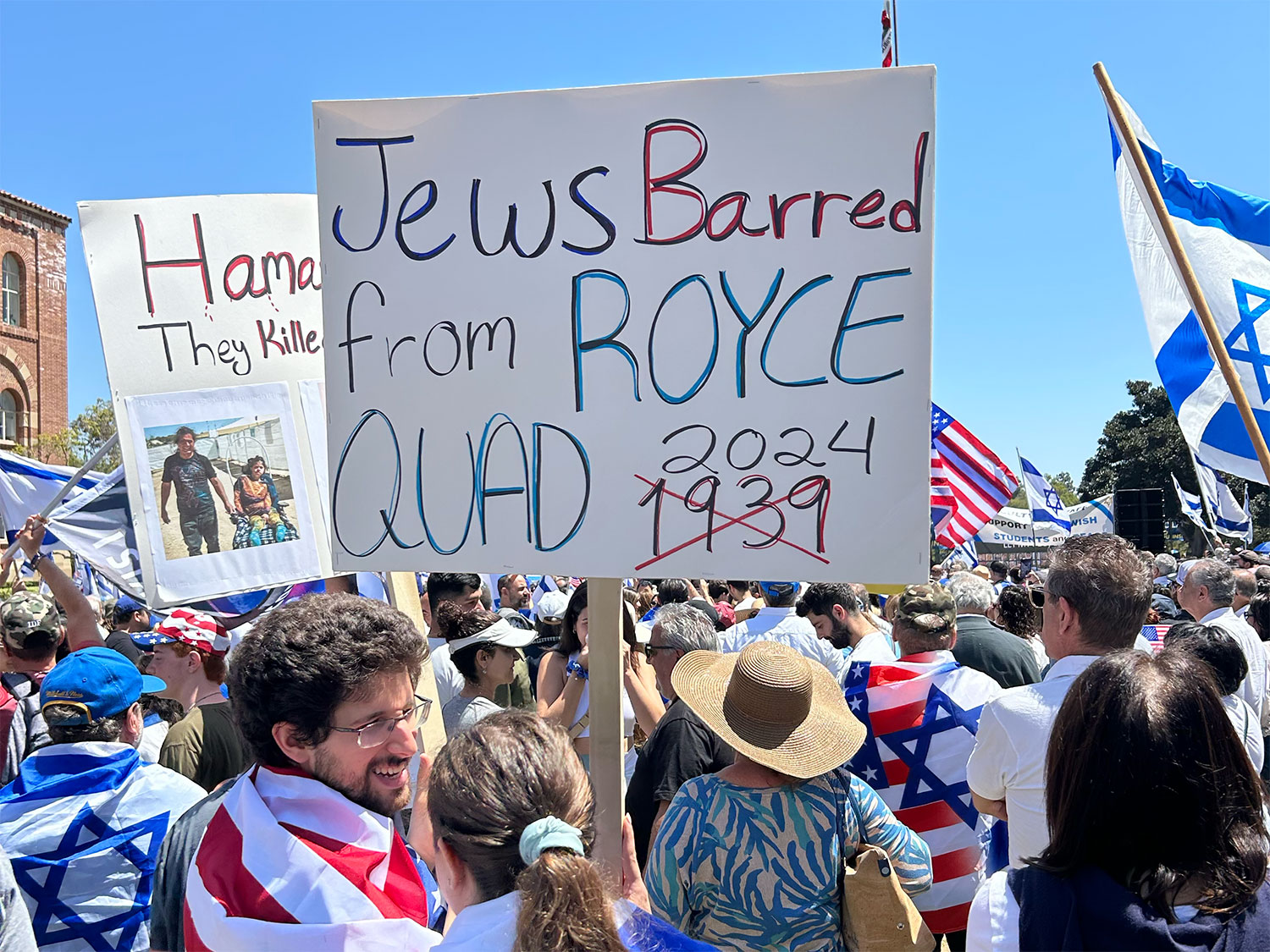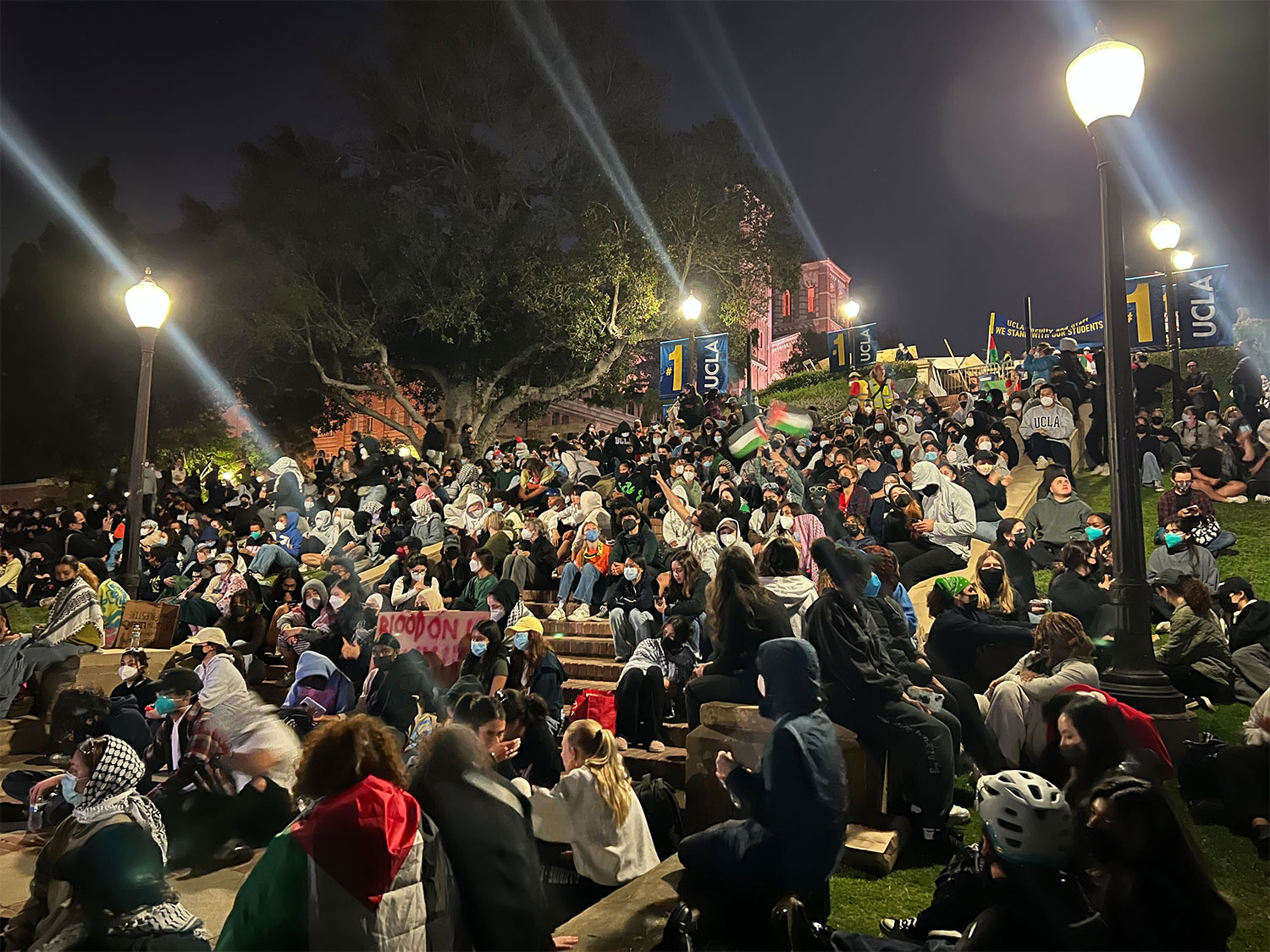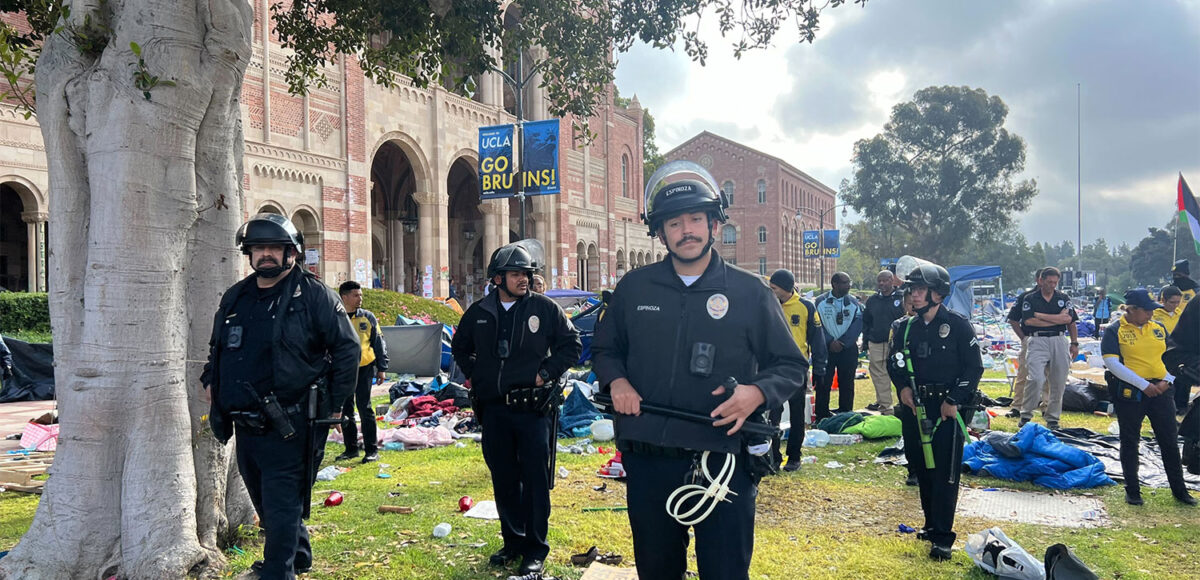The UCLA “Palestine Solidarity Encampment” came to a stunning end in the early morning hours of May 2 as law enforcement burst through its barriers and arrested over 200 protesters who refused to disperse.
The university leadership initially tried a tolerant approach when the occupation was established on Royce Quad last week, saying that it supported students’ right to peacefully protest and did not plan to bring external law enforcement onto campus.
But as the days and hours passed, violence steadily escalated around the encampment prompting UCLA to declare an unlawful assembly at 6 p.m. on May 1 and call in a massive police force to clear the area.
In an afternoon statement on May 2, UCLA Chancellor Gene Block said the encampment was “unlawful,” “a breach of policy,” and “needed to come to an end.”
“While many of the protesters at the encampment remained peaceful, ultimately, the site became a focal point for serious violence as well as a huge disruption to our campus,” Block stated.
Prior to the clearing, university officials came under fire for failing to ensure student safety when a group of pro-Israel counter-protesters staged a violent attack on the encampment on the evening of April 30.
“For over seven hours Zionist aggressors hurled gas canisters, sprayed pepper spray and threw fireworks and bricks into our encampment,” said protest organizers in a statement, adding that UCLA police officers and contracted private security officers did nothing to stop the violence.
“The only means of protection we had was each other,” organizers stated.
Los Angeles City Councilmember Katy Yaroslavsky said that the university police department’s response was “too slow and ineffective in protecting student safety.”
“In failing to control the situation, students and others on campus were left vulnerable to violence that has no place on our college campuses,” she stated.
Michael Drake, the UC’s systemwide president, has opened an investigation into UCLA’s handling of the April 30 violence.
Earlier this week the university was also criticized following allegations that protesters blocked a Jewish student’s access to class. While some anti-Zionist Jewish students joined the encampment, many other UCLA Jews reported feeling a heightened sense of danger on campus during the occupation.

Assembly Democratic Caucus Chair Rick Chavez Zbur (D-Hollywood), who represents the area surrounding UCLA, sent a letter to the U.S. Department of Education demanding a review of potential Title VI Civil Rights Violations faced by Jewish students on campus.
“I am alarmed and extraordinarily disappointed that the university allowed the situation to deteriorate with seemingly little regard for Jewish and Israeli American students’ personal safety and their civil rights as enrolled students,” he wrote in the letter.
Beverly Hills Mayor Lester Friedman, who is a UCLA alumnus, told the Courier that he supports the rights of students to peacefully protest, but is alarmed by acts of antisemitism seen at UCLA.
“For any other race to have the type of hate speech that is being put on view right now on college campuses, it wouldn’t be tolerated, and it shouldn’t be tolerated against the Jewish population,” he said.
Friedman also said he strongly disagreed with UCLA’s approach of not involving external police officers from the outset of the encampment.

Photo by Clara Harter
Shortly after the UCLA encampment was cleared, President Biden weighed in on the subject of college protests saying he supports peaceful protests, but not violent ones.
“Destroying property is not peaceful protest, it’s against the law,” he said. “Vandalism, trespassing, breaking windows, shutting down campuses, forcing the cancellation of classes and graduations—none of this is a peaceful protest.”
Biden also decried hate speech and racism on both sides of the issue.
“There is no place for hate speech, or violence of any kind, antisemitism, Islamophobia, discrimination against Arab Americans or Palestinian Americans,” he said. “It’s all wrong. It’s un-American.”
In-person classes at UCLA were canceled from May 1-3. As the Courier went to press, members of the public were asked to stay away from the encampment zone while university staff worked to restore the area. The Courier observed a huge amount of debris left over from the students’ weeklong occupation, including tents, sleeping bags, tables, chairs, food and medical supplies. There was also a significant amount of graffiti to cover, posters to remove and flags to take down.
“The past week has been among the most painful periods our UCLA community has ever experienced,” stated Block. “It has fractured our sense of togetherness and frayed our bonds of trust and will surely leave a scar on the campus.”







